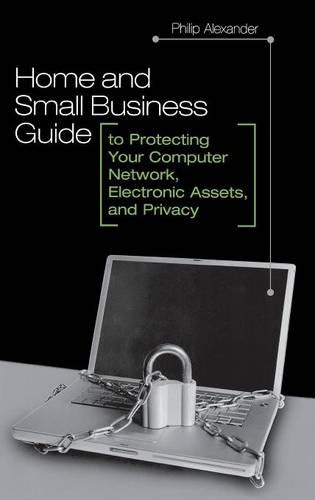
Home and Small Business Guide to Protecting Your Computer Network, Electronic Assets, and Privacy
(Hardback)
Publishing Details
Home and Small Business Guide to Protecting Your Computer Network, Electronic Assets, and Privacy
By (Author) Philip Alexander
Bloomsbury Publishing PLC
Praeger Publishers Inc
30th April 2009
United States
Classifications
General
Non Fiction
005.8
Physical Properties
Hardback
160
Description
In the news on a daily basis are reports of lost or stolen computer data, hacker successes, identity thefts, virus and spyware problems, and network incursions of various kinds. Many people, especially nonprofessional administrators of home or small business networks, feel helpless. In this book, technical security expert Philip Alexander explains in layman's terms how to keep networks and individual computers safe from the bad guys. In presenting solutions to these problems and many others, the book is a lifeline to those who know their computer systems are vulnerable to smart thieves and hackersnot to mention tech-savvy kids or employees who are swapping music files, stealing software, or otherwise making a mockery of the word security. In his job protecting data and combating financial fraud, Philip Alexander knows well which power tools are required to keep hackers and thieves at bay. With his gift for putting technical solutions in everyday language, Alexander helps readers with home and/or small business networks protect their data, their identities, and their privacy using the latest techniques. In addition, readers will learn how to protect PDAs and smartphones, how to make hardware thefts more unlikely, how to sniff out scammers and the motives of offshore tech support personnel who ask too many questions, and how to keep personal information safer when shopping over the Internet or telephone.
Reviews
Alexander, the director of security operations for a fraud management company, has written this guide to computer network security for small businesses and individuals who need to protect electronic assets and maintain privacy. The author uses layman's terms to discuss effective strategies for securing networks, managing personal and customer data, gaining remote access securely, avoiding ID theft, protecting cell phones and PDAs and discouraging scammers and hackers. Additional tips are provided choosing the right protection software, increasing computer productivity and solving basic computer problems. * Reference & Research Book News *
Author Bio
Philip Alexander is the Director of Security Operations for a fraud-management company. Alexander holds technical as well as security certifications (CISSP, ISSMP, MCSE, MCT) and has been working in the computer field since the 1980s in both the public and private sectors. He is the author Information Security: A Manager's Guide to Thwarting Data Thieves and Hackers (Praeger Security International, 2007).
